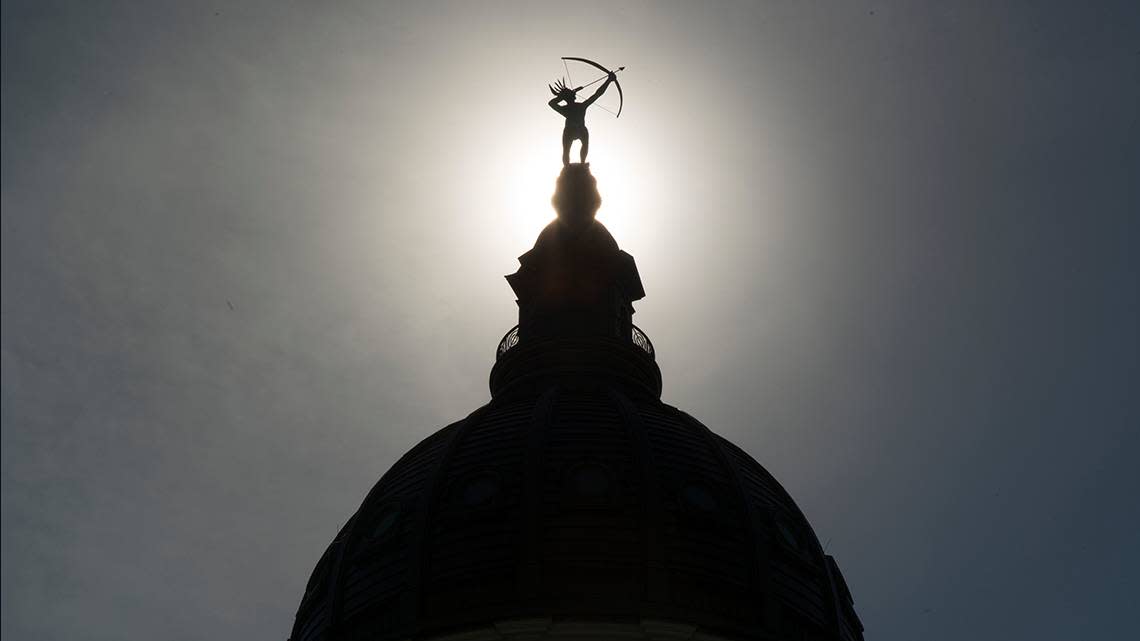Kansas Senate soundly rejects bill requiring public comments at school board meetings

The Kansas Senate overwhelmingly rejected an extensive bill aimed at giving conservatives more power on school boards across the state, a day after advancing the policy.
The state senate voted 13 to 24 Tuesday to reject the bill in a remarkable about face as lawmakers cited concerns the proposal would encroach upon local control.
“This is a brazen overreach on local control on duly elected school boards that forced policies that are already available for each school board to adopt brought by a few disgruntled School Board members to this body,” Sen Jeff Pittman, a Leavenworth Republican, said Tuesday.
The legislation would require boards of education to allow public comment at all meetings and allow any board member to question or engage in discussion with commenters. Any board member would have the power to add an agenda item to a meeting, allowing a single member to force discussion on any topic.
It would also require that board members have access to any school building or property whenever it is open to district employees. Districts would be required to publish the email addresses of board members.
And boards would be authorized to use general funds to pay for dues to any nonprofit organization that provides services to districts, making it easier for districts to partner with rival or alternative groups to KASB; currently, districts can only use general funds to pay for dues to KASB.
Leah Fliter, a lobbyist for KASB, applauded the Legislature for rejecting the policy after several board members reached out to senators.
“With that vote margin I think it shows that it’s not a popular measure and that senators, and by extension the constituents who elected them, support local school boards and trust us to do our jobs as is directed in the state constitution,” Fliter said.
The bill had come amid increased scrutiny of school boards by state lawmakers. In the years since COVID-19 more conservatives have joined school boards voicing frustrations over pandemic-era policies and “woke” curriculum. Those members have often seen their efforts for change stymied while conservative parents have complained boards do not listen to them.
“If you’re not allowed to speak to their board of education, where else shall they go?” Sen. Chase Blasi, a Wichita Republican, said during debate Monday.
The school board bill’s failure comes as the House and Senate consider broader education policy for the year.
The House will vote Wednesday on a bill that funds K-12 schools but alters the way the state calculates special education funding.
Kansas has missed legal funding requirements for special education for a decade. In response to repeated calls for more funding, a House is considering a bill that would count funds not currently attributed to special education so it appears the state had reached its requirement. The bill also allocates an additional $77.5 million for special education.

